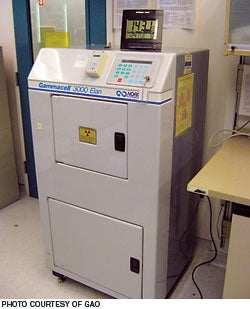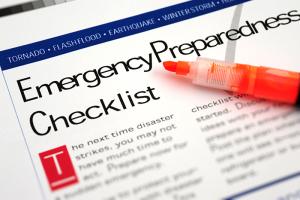NRC supports need to promote security of high-risk materials
 The Government Accountability Office (GAO) is pushing the Nuclear Regulatory Commission (NRC) to toughen its security requirements for high-risk radiological materials some hospitals keep on-site.
The Government Accountability Office (GAO) is pushing the Nuclear Regulatory Commission (NRC) to toughen its security requirements for high-risk radiological materials some hospitals keep on-site.
For now, the NRC agrees that it's essential to increase efforts to make urban area hospitals that have high-risk radiological materials aware of the potential need to upgrade security.
The concern is that the materials could be stolen and used by terrorists to construct a radiological dispersion device, commonly known as a dirty bomb, say GAO officials.
The possibility of such a device being constructed came to light after the events of Sept. 11, 2001, making security of high-risk materials a higher priority here and abroad.
As of March 2012, the National Nuclear Security Administration (NNSA) had spent $105 million to complete security upgrades at 321 of the 1,503 hospitals and medical facilities identified as having high-risk radiological sources on-site.
In a report released in September, the GAO recommended that NRC require tighter security and better training for inspectors and hospital staff responsible for high-risk radiological sources after visiting 26 health care facilities. The report states that GAO found inconsistent and sometimes lax levels of security for the high-risk materials, such as the radioactive isotope cesium-137, which are used for treatment and research.
The NRC took no position on the GAO's recommendations to require improved security and training but did explain its current efforts in these areas. It agreed that it was important to increase outreach efforts to promote awareness of the NNSA's security upgrade program.
Mark E. Gaffigan, managing director, natural resources and environment team, GAO, Washington, D.C., calls the agreement progress. "Increased awareness and promotion is a positive step."
Explosive devices used in a dirty bomb likely would cause more fatalities and damage than the radioactive material, but the device could create serious health, psychological and economic problems, says Gaffigan.




